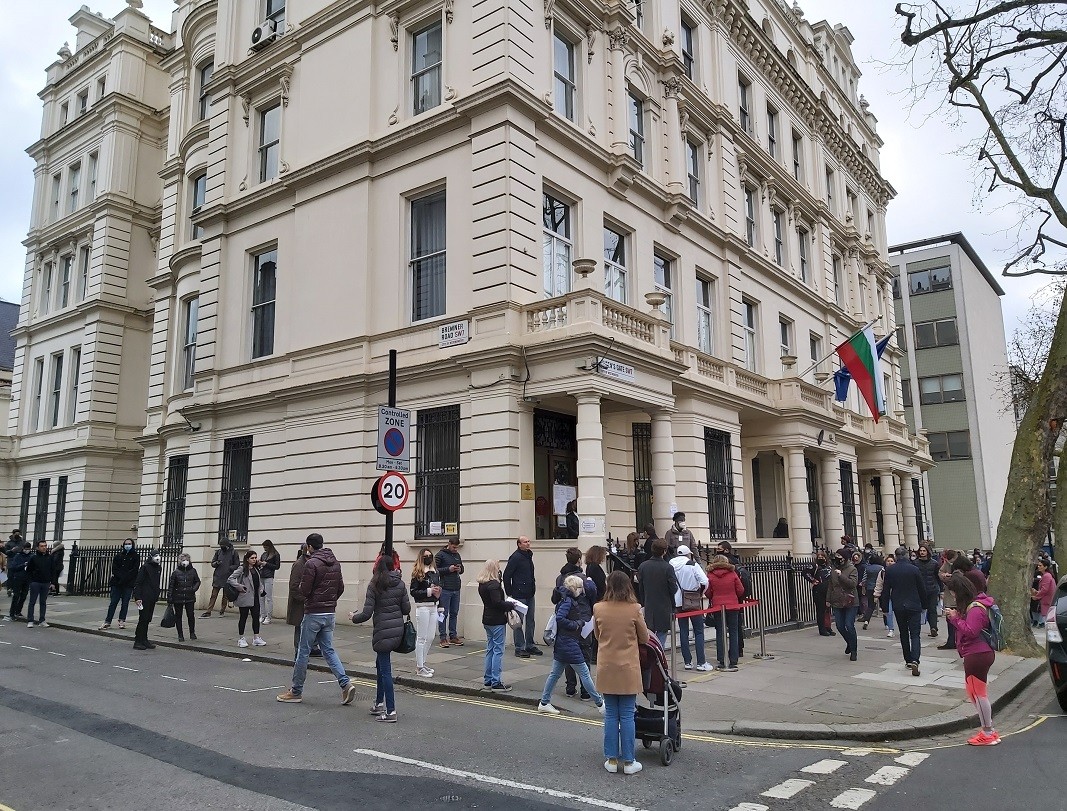A two-in-one election is likely to make more people interested in the race and cast their ballots today. This interest can also be seen in faraway London, where thousands of emails with applications for voting have been submitted. Even in districts with fewer Bulgarians, small polling stations with less than 300 voters have been set up, in order to give people the opportunity to skip traveling long distances and queues in front of the embassy building. Despite the fact this is the third election in a row this year, there are still many unresolved issues that election commission members face once again.
"The most difficult part was to persuade people to participate in the commissions," Zornitsa Rangelova says. She does not participate in election commissions, but is a coordinator at the embassy helping many Bulgarians who want to create polling stations in the South London area. She says that since April, accumulated disappointment from unrealized hopes has led to fatigue among people and a painful feeling of useless work.
"I sincerely hope that this would be the last election in the next few years, so that we can calm down. Moods have changed. While in January-March the people involved in the preparation of the elections were united, now you can feel there is opposition and criticism among them," Zornitsa Rangelova says and adds:
"At the moment when it became clear that there would be elections, we were all very happy, but now everyone is afraid; they don't know how many more elections we would have to survive. Participating in an election commission is a very responsible job. The voters really want to vote so that a functioning parliament can be formed and all problems can be addressed. Now, in this volatile situation, even if questions are raised, there is simply no one to decide."
"We will manage to cope with the situation, although many of our volunteers gave up," said Svetlana Kaneva, who is also chair of the Luton 2 station:
"The organization is very difficult for us now, as people have withdrawn. The entire commission of July resigned. I had to urgently look for new people and they are inexperienced and afraid of the elections. The main obstacle is that the link between the embassy, the CEC and our Ministry of Foreign Affairs has been broken and many problems affect us."

According to Svetlana Kaneva, the lighter anti-Covid measures in London, in comparison to the spring and summer, have caused difficulties in finding free halls for the polling stations.
"In Luton we had no problems finding a hall. The local university provided us with one. The problem was the late payment by the embassy. On Election Day I hope that the institutions will be much more active and much faster in answering our questions that inevitably arise. However, this time we received all the materials needed four days before the vote. There is still work to be done to improve the process and it would be very good for the ambassador to personally send a thankful letter to all the volunteers who helped in the elections throughout the year."
English: Alexander Markov
Photos: EPA/BGNES